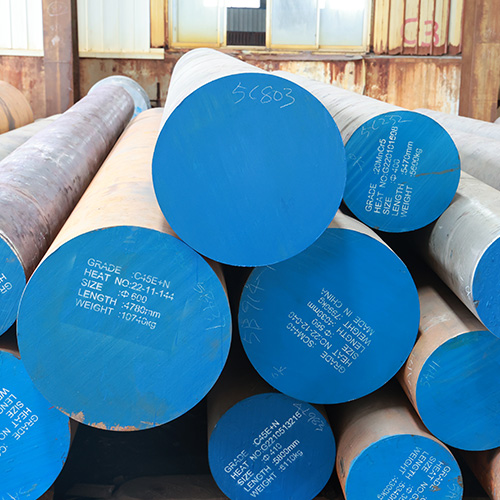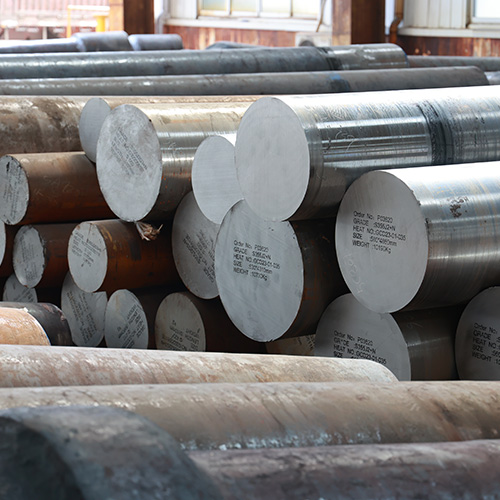Introduction

In the realm of construction projects, steel round bars are indispensable components due to their exceptional properties and wide-ranging applications. These cylindrical bars, known for their robustness and versatility, play a crucial role in providing structural support and reinforcement across various building types and infrastructure projects. This blog delves into the significance of steel round bars in construction, exploring their properties, applications, advantages, and environmental impact.
Properties of Steel Round Bars
Steel round bars are renowned for their mechanical properties that make them ideal for construction purposes. These bars typically exhibit high tensile strength, which enables them to withstand substantial loads without deformation or failure. This strength is complemented by their ductility, allowing for easy shaping and bending during fabrication. Additionally, steel bars possess excellent weldability and machinability, facilitating efficient assembly and integration into complex structural frameworks.
Applications in Construction
Steel round bars find extensive application across diverse construction scenarios, owing to their strength and adaptability. They are commonly used in:
Foundations
Steel round bars are crucial for reinforcing concrete foundations, providing structural integrity and enhancing load-bearing capacity. Their ability to resist tension makes them essential for withstanding ground pressures and ensuring stable building foundations.
Structural Framing
In structural framing, steel bars are employed as beams and columns due to their high strength-to-weight ratio. This characteristic allows architects and engineers to design taller and more spacious buildings while maintaining structural stability and safety.
Concrete Reinforcement
In reinforced concrete structures, steel bars are embedded within concrete to improve its tensile strength. This reinforcement prevents cracking and enhances the durability of infrastructure elements such as bridges, highways, and dams.
Infrastructure Projects
Steel round bars play a vital role in infrastructure projects such as bridges, tunnels, and roads. Their durability and resistance to environmental factors ensure longevity and safety, even in challenging conditions.
Manufacturing
Beyond construction, steel bars are essential in manufacturing industries for producing machinery, equipment, and industrial components. Their reliability and consistency make them preferred materials for critical applications where precision and strength are paramount.
Advantages of Steel Round Bars
The widespread adoption of steel round bars in construction is driven by several key advantages:
- Strength and Durability: Steel bars offer superior tensile strength and durability compared to other materials, ensuring longevity and reliability in structural applications.
- Versatility: They can be easily fabricated into various shapes and sizes to meet specific project requirements, offering flexibility in design and construction.
- Corrosion Resistance: Modern steel formulations include corrosion-resistant alloys that extend the lifespan of structures exposed to harsh environmental conditions.
- Sustainability: Steel is highly recyclable, contributing to environmentally responsible construction practices by reducing carbon footprint and resource consumption.
Environmental Impact and Sustainability

Steel round bars contribute positively to sustainability efforts in construction:
- Recyclability: Steel is one of the most recycled materials globally, with a high recycling rate that reduces the demand for virgin resources and minimizes waste.
- Energy Efficiency: Advances in steel manufacturing technologies have led to improved energy efficiency, lowering greenhouse gas emissions associated with production processes.
- Longevity and Maintenance: Structures built with steel round bars require less maintenance over their lifecycle, reducing the environmental impact of repairs and renovations.
Conclusion
In conclusion, steel round bars are integral to modern construction practices due to their unmatched strength, versatility, and sustainability. From foundational reinforcement to structural framing and infrastructure development, these components ensure the safety, durability, and aesthetic appeal of built environments. As technology and materials science continue to advance, steel round bars remain at the forefront of innovative construction solutions, meeting the evolving demands for sustainable and resilient urban infrastructure.
FAQ
Q: What grades of steel are commonly used for round bars in construction?
A: Common grades include ASTM A615/A615M for reinforcement, ASTM A36 for general structural use, and higher grades like ASTM A572/A572M for specialized applications.
Q: How are steel round bars fabricated into different shapes?
A: Steel round bars are typically hot-rolled into their initial form and then cold-drawn or cold-rolled to achieve the desired dimensions and surface finish. They can also be cut and welded into various shapes as per project requirements.
Q: What are the considerations for choosing steel round bars over other materials like concrete or wood?
A: Steel round bars offer superior strength-to-weight ratio, better resistance to environmental factors such as fire and corrosion, and greater design flexibility compared to concrete or wood. They are also recyclable, contributing to sustainable construction practices.
